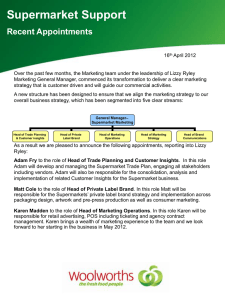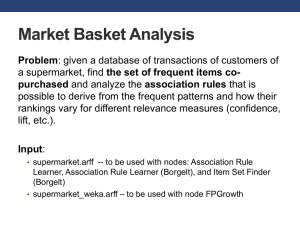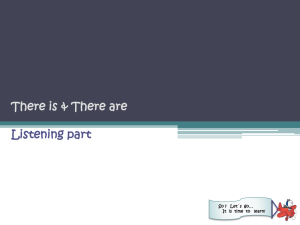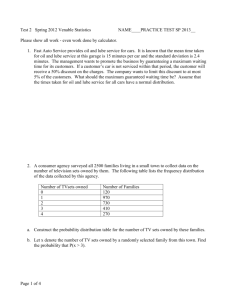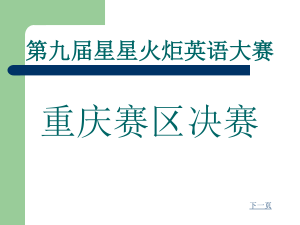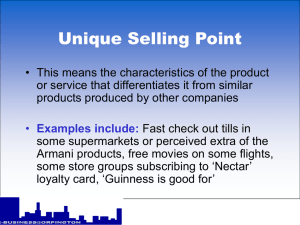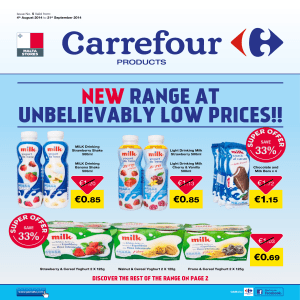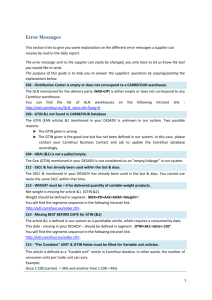Carrefour quits Japan
advertisement
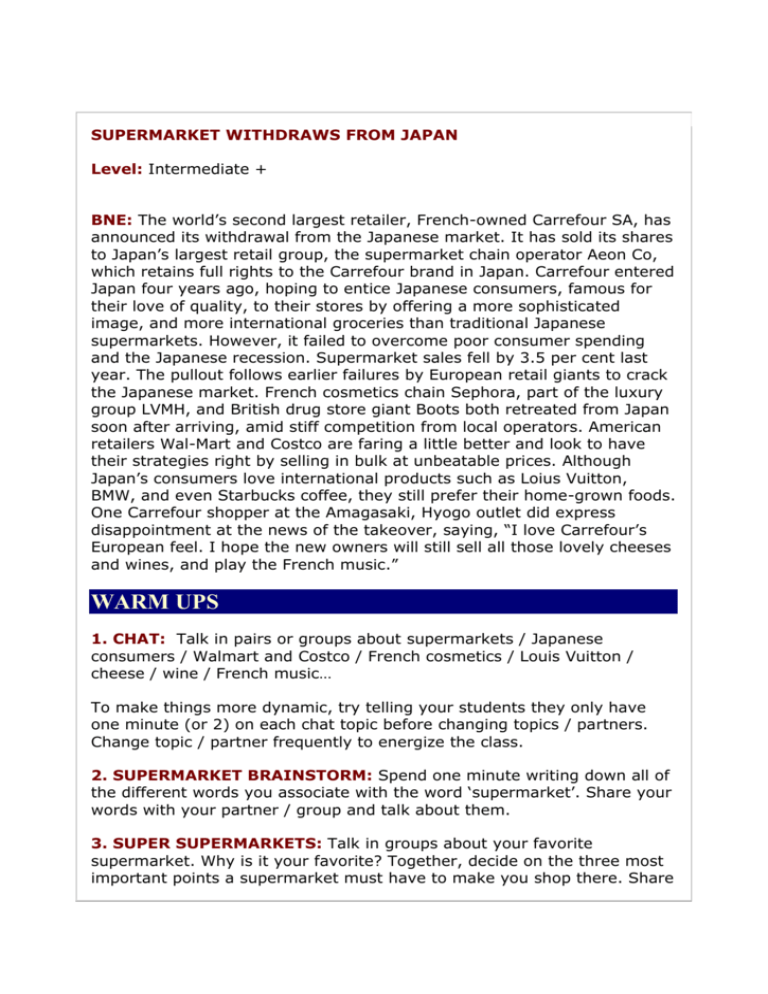
SUPERMARKET WITHDRAWS FROM JAPAN Level: Intermediate + BNE: The world’s second largest retailer, French-owned Carrefour SA, has announced its withdrawal from the Japanese market. It has sold its shares to Japan’s largest retail group, the supermarket chain operator Aeon Co, which retains full rights to the Carrefour brand in Japan. Carrefour entered Japan four years ago, hoping to entice Japanese consumers, famous for their love of quality, to their stores by offering a more sophisticated image, and more international groceries than traditional Japanese supermarkets. However, it failed to overcome poor consumer spending and the Japanese recession. Supermarket sales fell by 3.5 per cent last year. The pullout follows earlier failures by European retail giants to crack the Japanese market. French cosmetics chain Sephora, part of the luxury group LVMH, and British drug store giant Boots both retreated from Japan soon after arriving, amid stiff competition from local operators. American retailers Wal-Mart and Costco are faring a little better and look to have their strategies right by selling in bulk at unbeatable prices. Although Japan’s consumers love international products such as Loius Vuitton, BMW, and even Starbucks coffee, they still prefer their home-grown foods. One Carrefour shopper at the Amagasaki, Hyogo outlet did express disappointment at the news of the takeover, saying, “I love Carrefour’s European feel. I hope the new owners will still sell all those lovely cheeses and wines, and play the French music.” WARM UPS 1. CHAT: Talk in pairs or groups about supermarkets / Japanese consumers / Walmart and Costco / French cosmetics / Louis Vuitton / cheese / wine / French music… To make things more dynamic, try telling your students they only have one minute (or 2) on each chat topic before changing topics / partners. Change topic / partner frequently to energize the class. 2. SUPERMARKET BRAINSTORM: Spend one minute writing down all of the different words you associate with the word ‘supermarket’. Share your words with your partner / group and talk about them. 3. SUPER SUPERMARKETS: Talk in groups about your favorite supermarket. Why is it your favorite? Together, decide on the three most important points a supermarket must have to make you shop there. Share these with other groups. Back in your original groups choose the three most necessary points from those you heard. On a scale of 1 to 10 (10 is best) how does your favorite supermarket score on the three points? 4. 2-MINUTE SUPERMARKET DEBATES: Students face each other in pairs and engage in the following (for-fun) 2-minute debates. Students A are assigned the first argument, students B the second. Rotate pairs to ensure a lively pace and noise level is kept: a. Supermarket music is boring. vs. It’s relaxing and helps us shop more easily. b. You can get everything you need at supermarkets. vs. Can’t get good quality stuff. c. Checkout lines are too long. vs. It’s better than going to 10 smaller stores and waiting at 10 smaller checkouts. d. You get to eat free samples at supermarkets. vs. Who needs a onecentimetre-long piece of sausage? e. Supermarket shopping is a good family experience. vs. That’s the problem with modern societies. f. Supermarket staff are unfriendly. vs. Most supermarket shoppers are stressed and rude. g. Small specialty stores are best. vs. Small specialty stores are expensive. h. Supermarkets are always in out-of-the-way places. vs. Get a car or ride the free bus. i. French supermarkets offer the best quality food. vs. Only if you want to buy cheese in bulk. j. Supermarket carts / trolleys are too small. vs. Go shopping more often. PRE-READING IDEAS 1. WORD SEARCH: Students look in their dictionaries / computer to find collocates, other meanings, information, synonyms … of the words ‘super’ and ‘market’. 2. TRUE / FALSE: Look at the headline and guess whether these sentences are true or false: a. b. c. d. e. f. Carrefour is the world’s second largest retailer. T / F Carrefour entered Japan twenty years ago. T / F Japanese consumers are famous for their love of quality. T / F Japan is experiencing poor consumer spending and a recession. T / F Sales in Japanese supermarkets fell by 3.5 per cent last year. T / F Other European retail giants, such as Sephora and Boots, succeeded in Japan. T / F g. American retailers Wal-Mart and Costco are doing better than Carrefour. T / F h. One shopper said she hated the French in-store music. T/ F 3. SYNONYM MATCH: Match the following synonyms from the article: (a) (b) (c) (d) (e) (f) (g) (h) (i) (j) withdrawal retains entice sophisticated overcome pullout crack retreated stiff home-grown lure get around withdrawal keeps tough departure withdrew traditional upmarket succeed in 4. PHRASE MATCH: Match the following phrases based on the article (sometimes more than one combination is possible): (a) (b) (c) (d) (e) (f) (g) (h) (i) (j) The world’s second announced its withdrawal supermarket retains full it failed to Supermarket sales fell crack amid stiff selling express rights to the Carrefour brand in bulk by 3.5 per cent last year competition from local operators the Japanese market from the Japanese market disappointment chain largest retailer overcome poor consumer spending WHILE READING ACTIVITIES 1. GAP-FILL: Put the words on the right into the gaps. Carrefour quits Japan BNE: The world’s second largest __________, Frenchowned Carrefour SA, has announced its withdrawal from the Japanese market. It has sold its shares to Japan’s largest __________ group, the supermarket chain operator Aeon Co, which retains full rights to the Carrefour brand in Japan. entice giants unbeatable takeover failed Carrefour entered Japan four years ago, hoping to __________ Japanese consumers, famous for their love of quality, to their stores by offering a more sophisticated image, and more international groceries than traditional Japanese supermarkets. However, it __________ to overcome poor consumer spending and the Japanese recession. Supermarket sales fell by 3.5 per cent last year. The pullout follows earlier failures by European retail __________ to crack the Japanese market. French cosmetics chain Sephora, part of the luxury group LVMH, and British drug store giant Boots both retreated from Japan soon after arriving, amid __________ competition from local operators. American retailers Wal-Mart and Costco are faring a little better and look to have their strategies right by selling in bulk at __________ prices. Although Japan’s consumers love international products such as Loius Vuitton, BMW, and even Starbucks coffee, they still prefer their home-grown foods. One Carrefour shopper at the Amagasaki, Hyogo outlet did express disappointment at the news of the __________, saying, “I love Carrefour’s European feel. I hope the new owners will still sell all those lovely cheeses and wines, and play the French music.” retailer stiff retail 2. TRUE/FALSE: Students check their answers to the T/F exercise. 3. SYNONYMS: Students check their answers to the synonyms exercise. 4. PHRASE MATCH: Students check their answers to the phrase match exercise. 5. QUESTIONS: Students make notes for questions they would like to ask the class about the article. 6. VOCABULARY: Students circle any words they do not understand. In groups, pool unknown words and use dictionaries to find the meanings. POST READING IDEAS 1. GAP-FILL: Check the answers to the gap-fill exercise. 2. TASK: Students ask the discussion questions they thought of above to their partner / group / class. Pool the questions for all students to share. 3. VOCABULARY: As a class, go over the vocabulary students circled above. 4. STUDENT-GENERATED SURVEY: Pairs/Groups write down 3 questions based on the article. Conduct their surveys alone. Report back to partners to compare answers. Report to other groups / the whole class. 5. ‘SUPER’/ ‘MARKET’: Students make questions based on their findings from pre-reading activity #1. 6. DISCUSSION: Students ask each other the following questions: a. What was interesting in this article? b. Have you ever shopped at Carrefour, Walmart or Costco? Which is best? c. What do you like most about supermarkets? d. What do you hate most about supermarkets? e. Are supermarkets better than specialty stores? f. What’s your favorite section in the supermarket? g. Do you like going to supermarkets in other countries? h. Do you like French cheese and wine? i. Do you often buy produce or dishes from other countries? j. What’s your opinion of supermarket staff? k. What’s your opinion of other supermarket shoppers? l. Have you ever had a bad experience in a supermarket? m. If you worked in a supermarket, would you prefer to be a checkout cashier, a shelf-filler, a courtesy-bus driver, or a price-gun tagger? n. Would you mind if your local supermarket was foreign owned?? o. What do you think of supermarket music? p. What changes would you like to see in supermarkets? q. When food shopping, do you shop for quality or price? r. Is food shopping a nice, family-oriented experience? s. Teacher / Student additional questions. HOMEWORK 1. VOCABULARY EXTENSION: Choose several of the words from the text. Use a dictionary or Google’s search field (or another search engine) to build up more associations / collocations of each word. 2. INTERNET: Search the Internet and find information on Carrefour. Share your findings with your class next lesson. 3. STORE COMPARISON: Visit two different supermarkets and write a short report comparing them. 4. LETTER TO THE MANAGER: Write a letter to the manager of your local supermarket recommending five changes that you think would make the supermarket much better.

